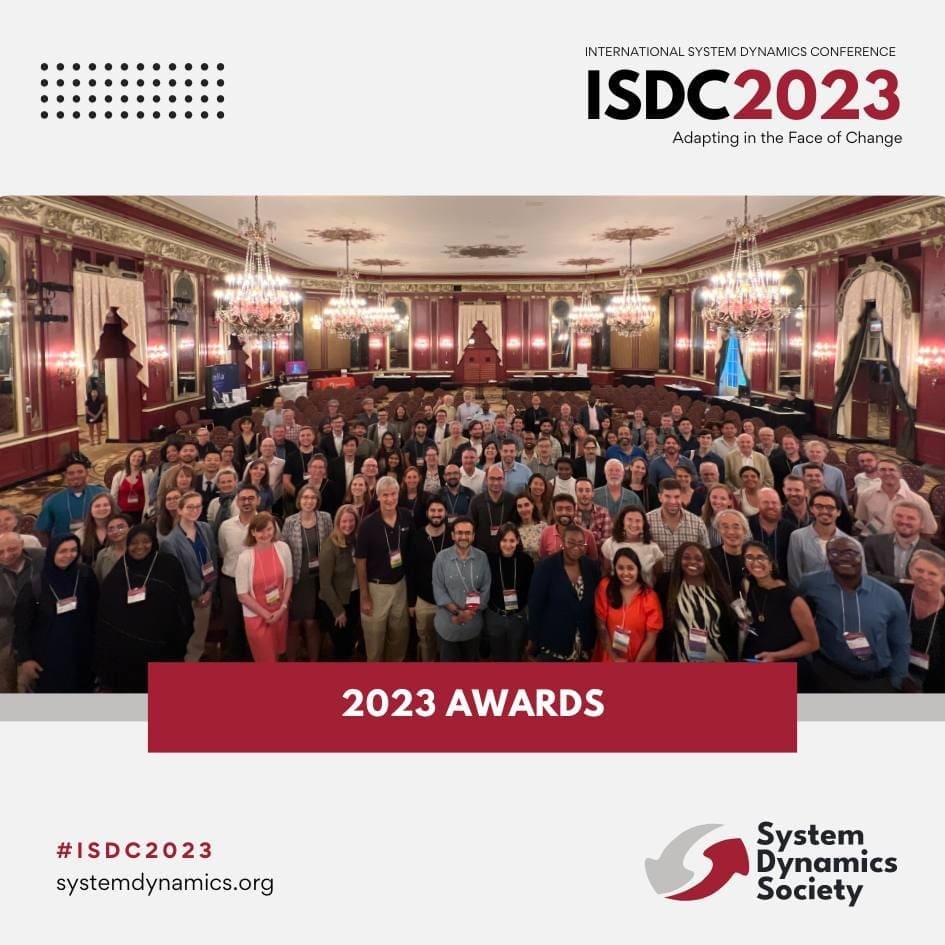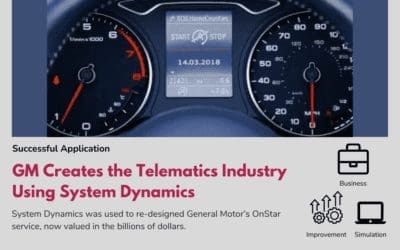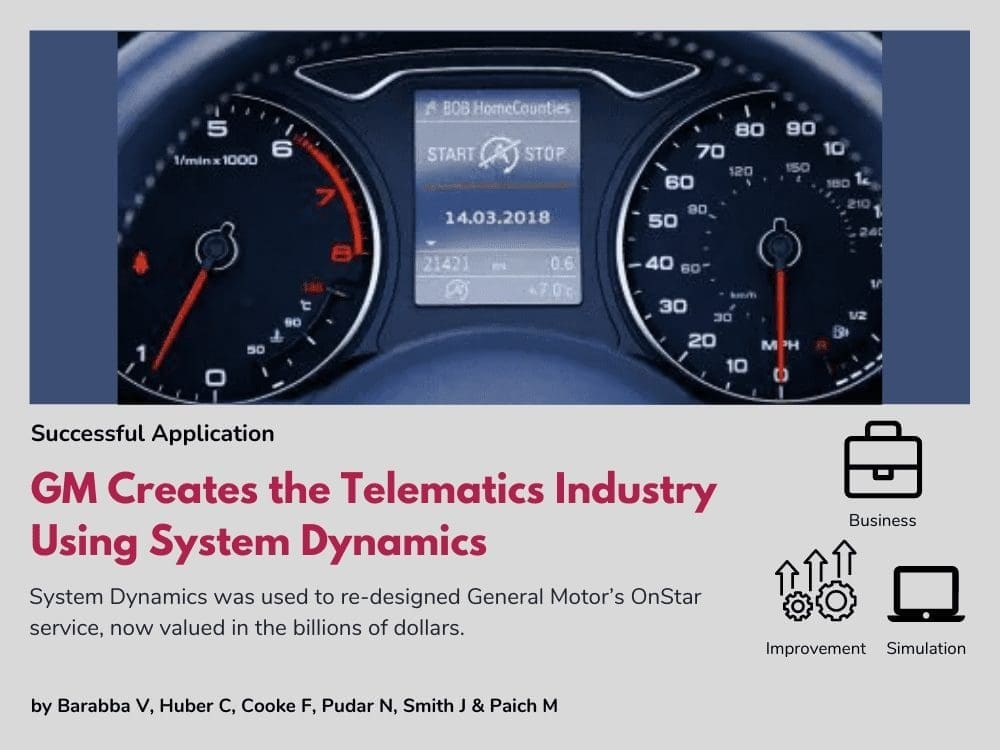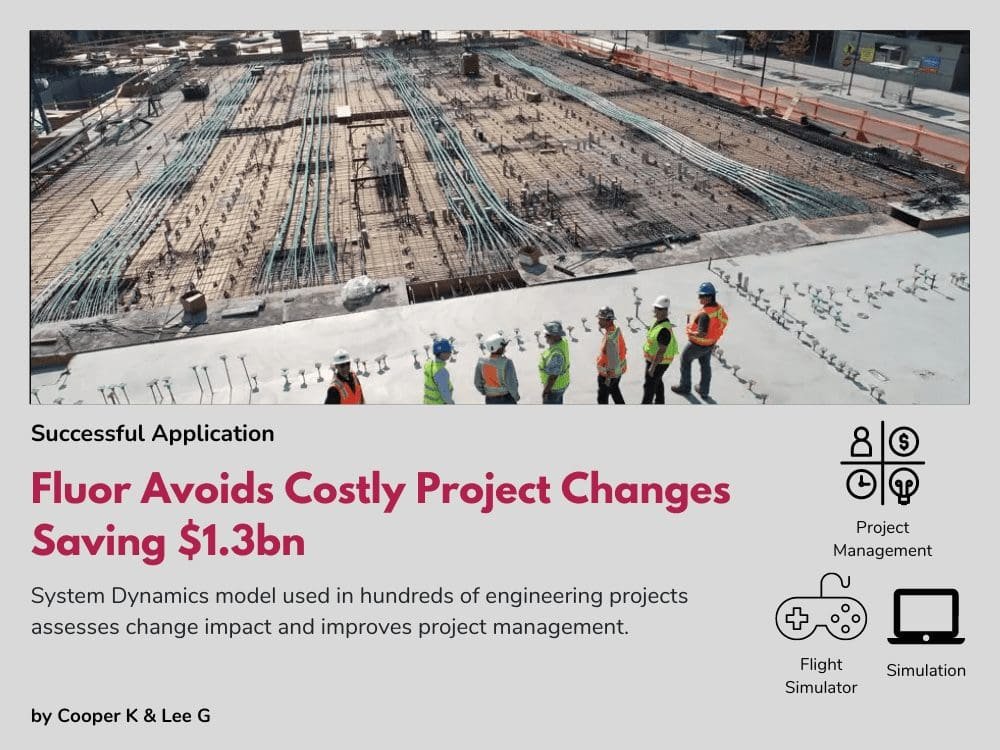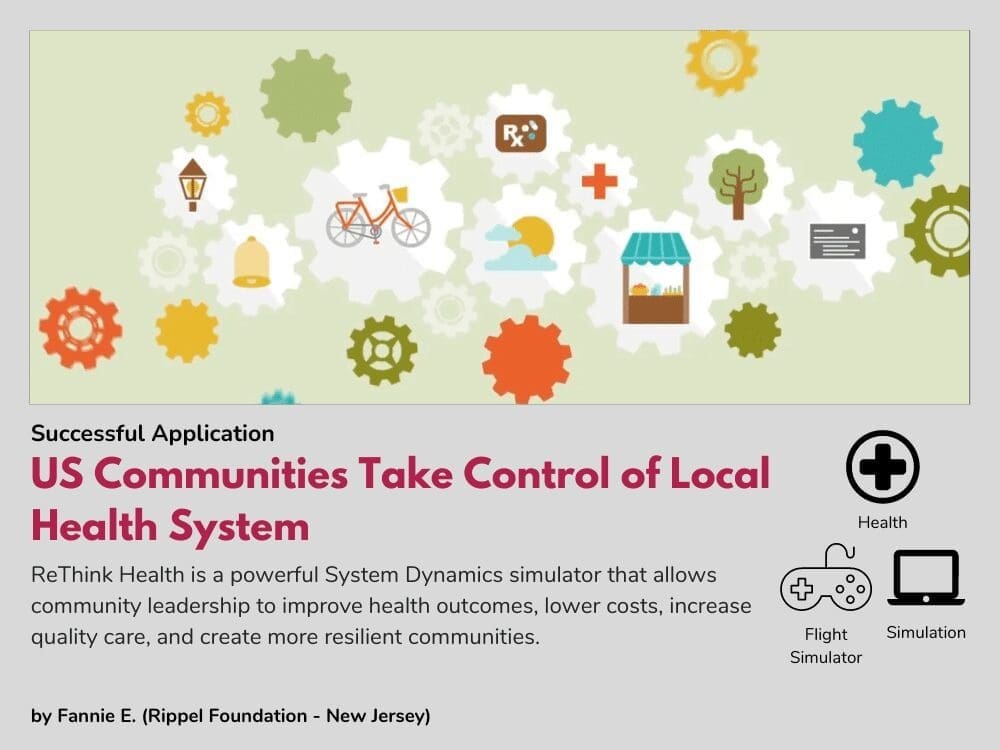Honoring Excellence: A Glimpse into the Awards of the International System Dynamics Conference
Honoring Excellence: A Glimpse into the Awards of the International System Dynamics Conference
The International System Dynamics Conference brings together experts, practitioners, and students to exchange ideas, showcase real-world applications, and celebrate outstanding achievements in the field. Every year, the System Dynamics Society recognizes exceptional contributions through a range of awards. In this article, we shed light on the various awards presented during the conference and the brilliant minds that earned these honors in the recent edition.
System Dynamics Applications Award
This award is presented for the best real-world application of System Dynamics. ReThink Health’s System Dynamics model has made notable strides in the health sector, being integrated by over 20 universities and 52 federal agencies. Over 2000 individuals have connected with its network, formulating long-term, equitable recovery plans based on this approach.
Winners: ReThink Health – Bobby Milstein, Jack Homer, Gary Hirsch, Elliott Fisher, Rebecca Niles, Kris Wile, Chris Soderquist, and John Sterman.
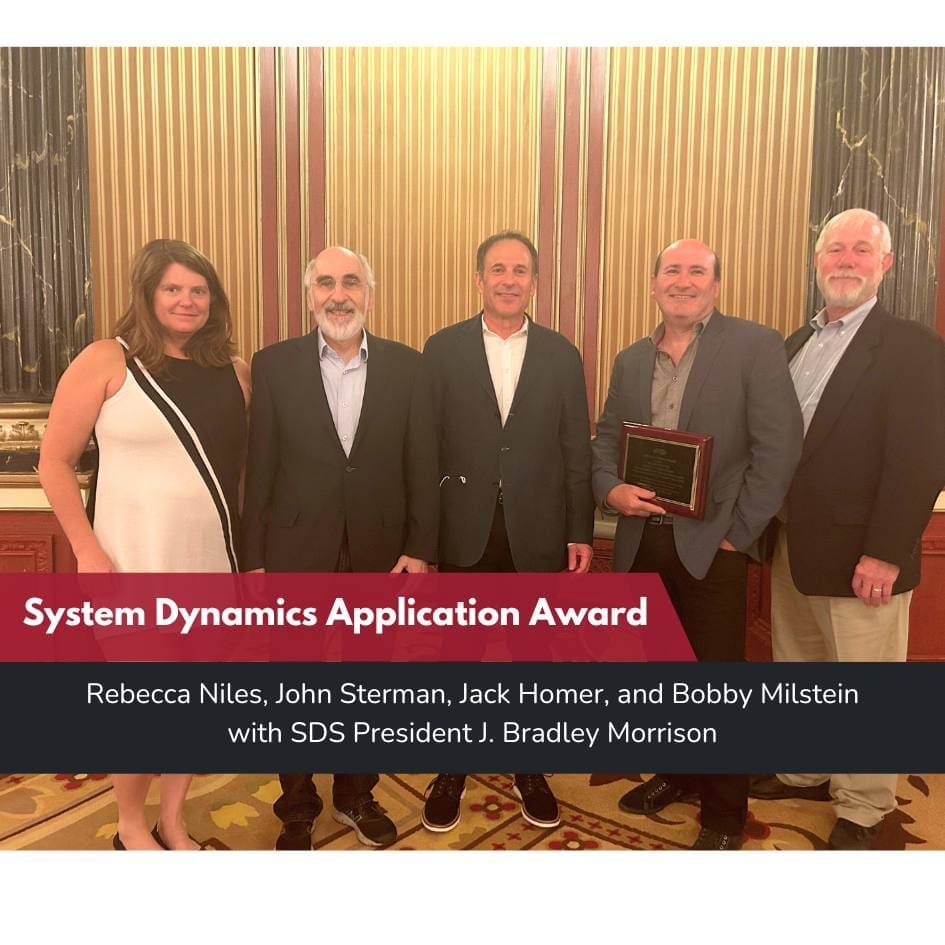
Outstanding Service Award
The Outstanding Service Award recognizes individuals for their exceptional volunteer contributions to the Society over an extended period of time. Rod MacDonald, with his vast 25-year experience in developing simulation models, has been invaluable, especially with his contributions to the Modeling Assistance Workshop and the Short-Term Modeling Assistance program.
Winner: Rod MacDonald (left)

Dana Meadows Award
Named after Dana Meadows, this award celebrates top-tier student work in System Dynamics. Ann Osi and co-author Navid Ghaffarzadegan’s research has clearly demonstrated the excellence the award seeks to honor.
Winner: Ann Osi
Paper: Data-Informed Parameter Estimation in Behavioral Epidemic Models
Abstract: Behavioral epidemic models integrate disease spread and human response. This study found that estimating behavior parameters is less accurate in early pandemic stages. Better estimates come after the pandemic’s first peak and with more behavior data. Traditional SEIR models can be misleading, fitting well initially but erring later on. The research underscores the intricacies of calibrating behavior-disease models.
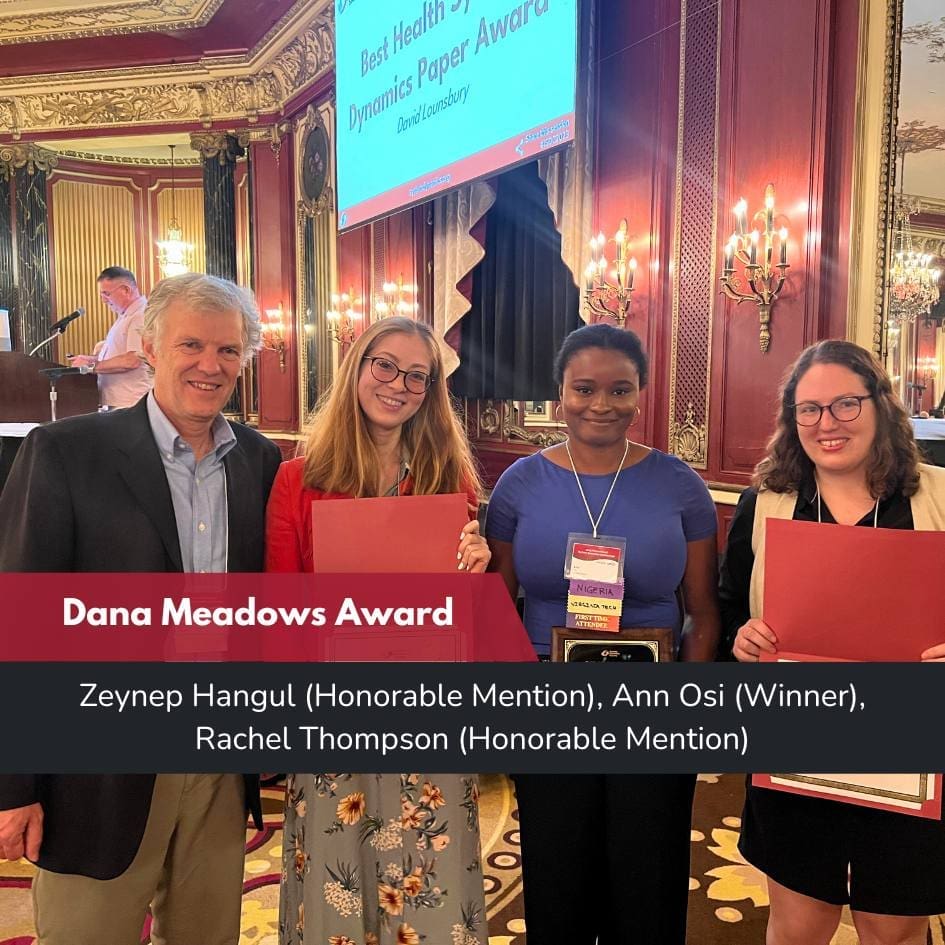
Early Career Health Paper Award
Aimed at acknowledging extraordinary papers addressing health topics by students or recent graduates. The paper by Samuel Allen, Andrada Tomoaia-Cotisel, Rod MacDonald, and Jason M. Etchegaray was outstanding in this category.
Winners: Samuel Allen and Andrada Tomoaia-Cotisel
Paper: Implementing and Sustaining Healthcare Quality Improvement: A Case Study Examining Feedback Structure and Dynamics
Abstract: Quality improvement (QI) in healthcare goes beyond simple feedback. A case study in a Neonatal Intensive Care Unit from 2015-2019 developed a unit-based approach (UBA) for front-line QI training, leading to improved quality. Mixed methods simulation modeling documented the feedback and context of this intervention. While a simplified feedback structure can explain many situations, sustaining UBA’s effectiveness demands new management and system design innovations.
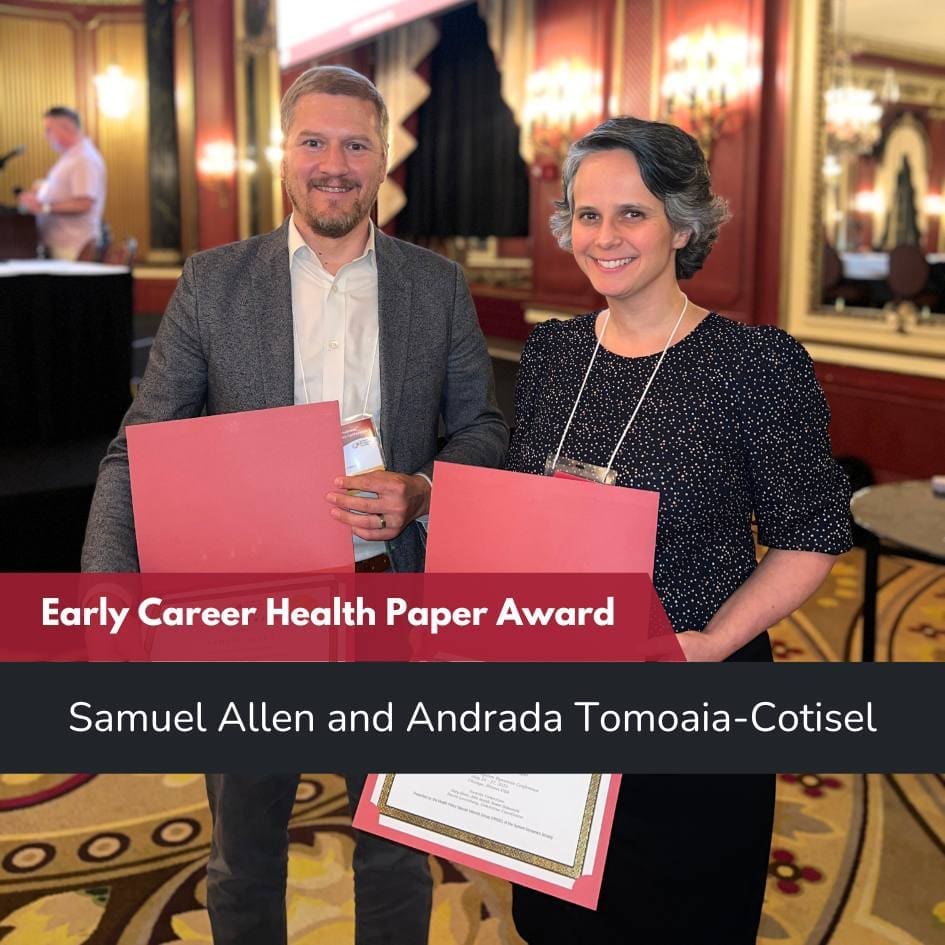
Honorable Mentions
The honorable mentions spotlight commendable efforts and innovative approaches that greatly contribute to the field. Their work exemplifies dedication, and innovation, and showcases potential future leaders in the domain.
Zeynep Hasgul and Alireza Akhavan – Dana Meadows Award and Health Award
Health-related Quality of Life of Patients Receiving Immunotherapy: Modeling Analysis (Q-PRIMA Study)
Rachel Thompson – Dana Meadows Award
A qualitative system dynamics model of overdose bystander behavior in the context of Connecticut’s Good Samaritan Laws
Nabeela Mumtaz – Health Award
Estimates of the Reproduction Number for Seasonal Influenza Infectious Disease in the European Region from 2012 to 2016
Zahra Shams Esfandabadi – Dana Meadows Award
The Future of Carsharing Services and its Role in Sustainable Transportation
Barry Richmond Scholarship Award
Established in 2007 by isee systems to honor and continue the legacy of its founder, Barry Richmond. It is presented to a deserving Systems Thinking/System Dynamics practitioner whose work demonstrates a desire to expand the field or to apply it to current social issues.
Winners: Junlai Zhang
Paper: Using System Dynamics modeling to forecast China’s population until 2060 to visualize the aging and shrinking population trends
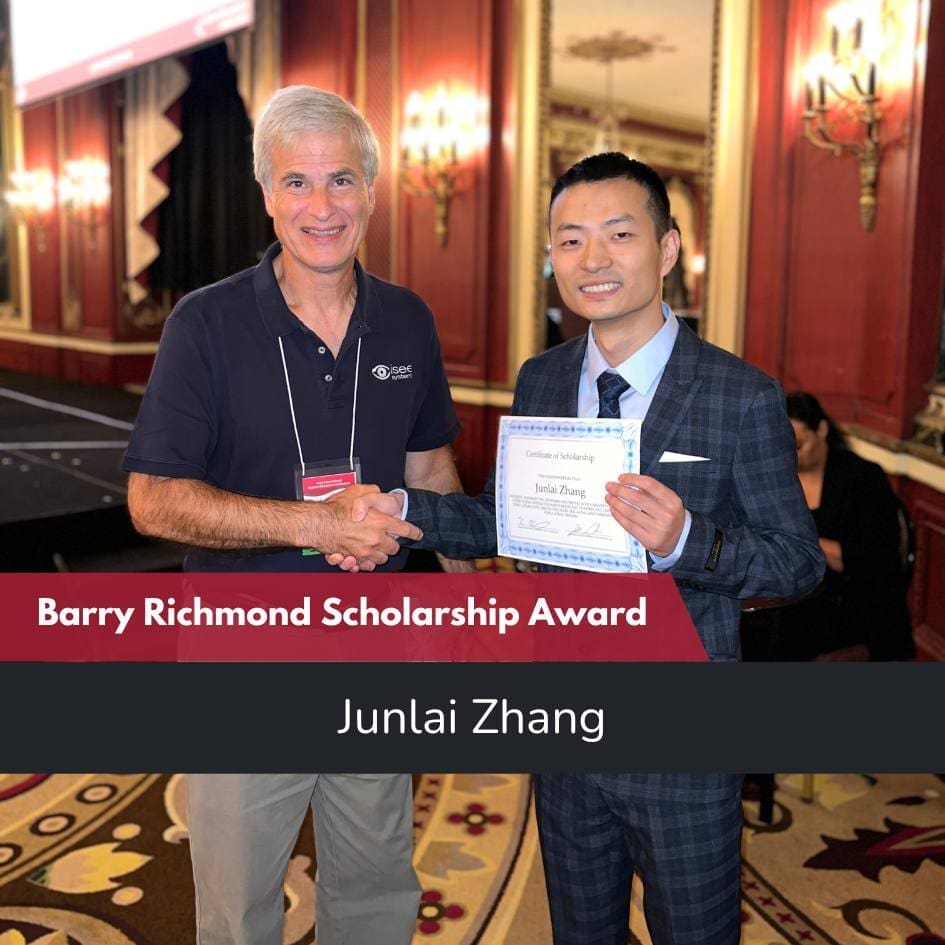
Recent Posts
Call for Presenters: Seminar Series
Call for Presenters: Seminar Series We at the System Dynamics Society are continually seeking vibrant and knowledgeable presenters for our ongoing Seminar Series. As we unfold the calendar, there’s always a place for more insights, experiences, and expertise to enrich...
Honoring Excellence: A Glimpse into the Awards of the International System Dynamics Conference
Honoring Excellence: A Glimpse into the Awards of the International System Dynamics Conference The International System Dynamics Conference brings together experts, practitioners, and students to exchange ideas, showcase real-world applications, and celebrate...
From Bergen to Global: UiB’s System Dynamics Group
From Bergen to Global: UiB’s System Dynamics Group The System Dynamics Group, an autonomous research group at the University of Bergen (UiB) was established in 1971 by professor emeritus Svein Nordbotten. Inspired by the work of Jay W. Forrester, Nordbotten...
Upcoming Events

Virtual Career Fair by MINDS & SDS
The Master students in System Dynamics at the University of Bergen, in partnership with the System Dynamics Society, are excited to host an enriching Virtual Career Fair. This event is designed to connect students, alumni, and professionals in the field of System...
Recent Business cases
A Design Value Calculator: A System Dynamics Boardgame
A Design Value Calculator: A System Dynamics Boardgame EXECUTIVE Summary Product design is a specific form of complex innovation that touches all areas of an organization’s management. While entrepreneurs recognise the value of design, they often tend to focus...
The World Bank Uses System Dynamics to Identify Root Causes of Poverty
The World Bank Uses System Dynamics to Identify Root Causes of Poverty EXECUTIVE Summary Madagascar has one of the highest poverty rates in the world. In 2022, an astonishingly three out of every four people in Madagascar lived below the poverty line. Poverty has...
Fast-Track Cities Uses System Dynamics to Enhance HIV Care
Fast-Track Cities Uses System Dynamics to Enhance HIV Care EXECUTIVE Summary Low levels of viral suppression at 69% for people with HIV make it hard to believe the 95% target level will be achieved by 2030 in St. Louis, USA. As a solution, Fast-Track Cities-STL opted...
Join us
Early Career Health Paper Award
The Award
The Early Career Health Paper Award is given to outstanding papers dealing with health-related topics, authored by students or recent (past 5 years) graduates and presented at the conference. If you have multiple papers select the one you wish to submit.
The Prize
The $2500 award will be presented to the recipient (or recipients) during the Annual Health Policy Special Interest Group (HPSIG) Members’ Meeting, which is typically held in-person on the Sunday just preceding the conference. A brief announcement will also be made to all conference attendees at a plenary session.
This award will be given to people at early stages of their careers to encourage them to do further work in health System Dynamics.
Funding
This award is funded by generous donations from community members interested in promoting System Dynamics applications to health:
- Jack Homer
- Wayne Wakeland
- David Lounsbury
- Gary and Linda Hirsch
Email us if you are interested in supporting future awards.
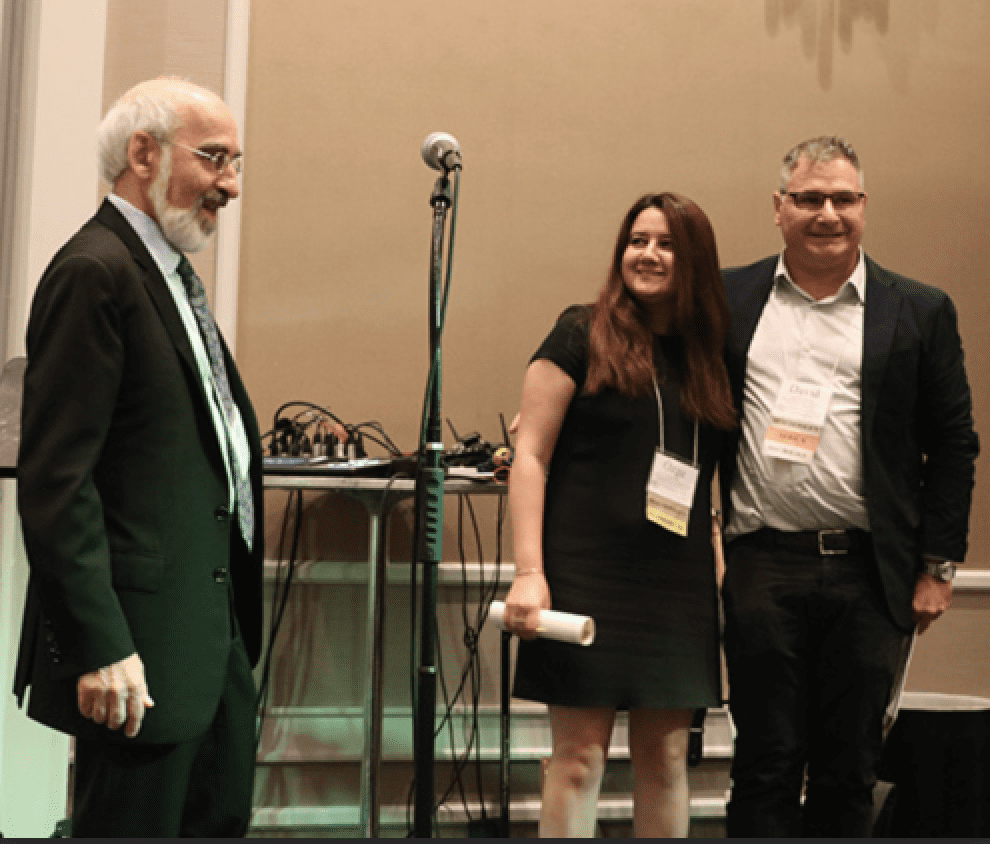
Ozge Karafil, 2017 winner
Health Award Committee
David Lounsbury (Health Thread Chair)
Gary Hirsch
Jack Homer
Wayne Wakeland
guidelines
The Health Policy Special Interest Group (HPSIG) of the System Dynamics Society is pleased to present the Early Career Health Paper Award for work in health System Dynamics, which will be awarded at this summer’s International System Dynamics Conference (ISDC). The award is sponsored by the Early Career Health Paper Award Committee of the HPSIG.
This award will be given to people at early stages of their careers to encourage them to do further work in health system dynamics. In the event the winning paper represents the equal work of more than one applicant, or if there are two winning papers, the cash prize may be subdivided. The work considered for this award must be accepted for presentation at the Conference. Papers are self-nominated, and to be eligible, the author(s) must either be in graduate school or have completed their educational training no more than five years prior to paper submission.
Authors need not be members of the System Dynamics Society and may, in fact, specialize in other methodologies and use them in their submitted papers. But their work must:
- Focus on dynamic phenomena in health systems and problems,
- Demonstrate technical quality and clear presentation, and
- Provide original insights derived from a dynamic analysis.
In addition to presenting at the ISDC, the winner(s) must be willing to participate in the Annual HPSIG Members’ Meeting (typically held in-person during the ISDC), to receive their prize and to discuss their winning work with HPSIG members.
Self-Nominating Procedure
You must nominate yourself via the submissions system. There is no other way to be nominated for the Early Career Health Paper Award.
If your paper is co-authored and one or more of your co-authors does not meet the requirements for this award, then each such co-author must write a statement to the Early Career Health Paper Award Committee indicating that the eligible authors are indeed responsible for the great majority of the background research, modeling, and writing (including revisions) of the paper.
Scroll down to see a sample statement included below for reference. To be considered for the Award authors should identify themselves as eligible when they submit their papers to the conference and no later than the conference paper submission deadline.
Note that for coauthored papers all eligible authors will share equally in any prize awarded.
Nomination Deadline
No later than the conference submission deadline.
Sample Statement
Email: conference@systemdynamics.org
Attn: Early Career Health Paper Award Committee Members, Health Policy Special Interest Group, System Dynamics Society
Dear Committee Members,
In regards to the paper # titled “” for which I am listed as an author:
I certify that __________ (list all eligible authors) [is/are] responsible for the great majority (at least 85%) of the background research, modeling, and writing (including revisions) of this paper. I further certify that [he/she/they] [is/are] either in graduate school or [has/have] completed [his/her/their] educational training no more than five years prior to paper submission and [is/are] qualified to receive the Early Career Health Paper Award for this work. [His/her/their] dates of graduation are as follows: ________ (list actual or planned date(s) of graduation for each eligible author.)
Signed:
Early Career Health Paper award winners
Prior to 2023, this was the Lupina Young Researcher Award by the Lupina Foundation
Outstanding Community Service Award
The Award
The System Dynamics Society Outstanding Service Award recognizes individuals that have, on a volunteer basis, made exceptional contributions to the Society over an extended period of time.
The Society has a long and proud tradition of volunteer service and Julie Pugh, who volunteered as the first Executive Director, has inspired this award. Even after establishing a central office with a paid professional staff in 1996, the growth and development of the Society has been heavily dependent on the work of volunteers. To acknowledge this work, emphasize its importance in achieving Society goals, and highlight efforts that can inspire others, this service award was established in 2009.
It is awarded as often as once per year during the annual conference.
The Prize
During the announcement a personalized plaque will be presented with a very brief recitation of achievement. The award will also be announced in a System Dynamics Newsletter after the conference. Award recipients will be listed on the Society website.

Outstanding Community Service Award Committee
Roberta Spencer (Chair) 2020-2024
Robert Eberlein 2021-2025
Birgit Kopainsky 2023-2026 partial term
Rebecca Niles 2023-2027
Jac Vennix 2019-2023 (Sara Metcalf 2024-2028)
guidelines
The Community Services Award Committee will select individuals who have:
-
Made an unusually outstanding contribution to the Society in a way that benefits the development and advancement of system dynamics.
-
Exhibited the highest standards of service excellence, dedication, and accomplishment over a sustained period of time with:
-
an extended period of service, well beyond the normal term, and
-
a substantial amount of work performed above what would be considered normal for that role.
-
-
Taken initiative to move the Society forward.
-
Created positive results for Society members and the larger community of people interested in system dynamics.
-
Fostered a culture of service and responsibility and set a standard to inspire others.
In cases where the recipient is not attending the conference the presentation may be deferred to the following conference. In this case two awards may be presented at one conference. If the recipient is not able to attend either conference the award may be announced at one of the conferences and presented privately.
outstanding community service award winners
System Dynamics Lifetime Achievement Award
The Award
The System Dynamics Society occasionally recognizes people for making a significant contribution to a field or a practice over an extended period of time. This is the only award of the Society that is based on a body of work done over lifetime and not on a single article.
This award was formalized in 2012 and had been given very sparingly in the past. It cannot be given out posthumously. No nominations are solicited for the award and the Jay Forrester Award Committee decides on the winner.
The Prize
The award carries a plaque recognizing the achievement of the winner.

System Dynamics Lifetime Achievement Award Committee (aka JWF Committee)
John Sterman 2023-2027
Shayne Gary (Chair in 2024) 2022-2026
Elke Husemann 2022-2026
Khalid Saeed 2021-2025
David Lane 2024-2028
lifetime achievement award winners
System Dynamics Applications Award
The Award
The System Dynamics Applications Award is presented by the Society as often as every year for the best “real world” application of System Dynamics.
The best application is based primarily on demonstrated measurable benefit to an organization through the use of System Dynamics, and secondarily for new ideas that improve the art of applying System Dynamics, or for relating work to existing System Dynamics literature and/or other disciplines. The work must have been conducted within ten years of the submission deadline.
The Prize
Winners are announced and a certificate is presented at the annual conference of the System Dynamics Society. The winner may also be invited to deliver a talk on the work which may subsequently be published in the System Dynamics Review.

System Dynamics Applications
Award Committee
Bradley Morrison (Chair) 2020-2025
Mark Heffernan 2022-2026
Sharon Els 2023-2027
TBD
guidelines
Criteria for eligible papers for the award include:
-
Papers must be full-length and written for a System Dynamics user audience, in the English language in the original or after translation;
-
If previously published, the papers must have been within seven years of the submission deadline;
-
At least one named author must have been employed at the time of the work by the company or organization whose performance was improved by the System Dynamics modeling effort;
-
The paper must not have won or been an announced finalist for a previous award from the System Dynamics Society; and
-
Papers may be self-nominated.
Nominations, papers, and supporting information as well as any questions should be sent to the committee chair.
system dynamics applications award winners
GM Creates the Telematics Industry Using System Dynamics
GM Creates the Telematics Industry Using System Dynamics The Official Website onstar.com is the official website in which you can become a member, get familiar with the services and purchase a plan. The Issue You Tackled In 1997, General Motors (GM) assembled a...
Fluor Avoids Costly Project Changes Saving $1.3bn
Fluor Avoids Costly Project Changes Saving $1.3bn Fluor saves $1.3 billion in System Dynamics-based project management. #United States #Engineering #Fluor #Corporation CLIENT: FLUOR Fluor is one of the world’s largest engineering and construction firms, with 2008...
US Communities Take Control of Local Health System
US Communities Take Control of Local Health System The Official Website rethinkhealth.org is the official website that covers all information about this project including the latest news, simulators and learning tools, videos, etc. The American Health System is...
Jay Wright Forrester Award
The Award
The Jay Wright Forrester Award is presented as often as once annually for the best contribution to the field of System Dynamics during the preceding five years.
Papers, articles, books, research or consulting reports, theses or other written material that have been published or are in publishable form in the English language, in the original or after translation, are eligible for consideration.
The Prize
The recipient(s) receive(s) a commemorative plaque and US$5,000.
Funding
This award is funded by the System Dynamics Society. Email us if you are interested in supporting future awards.
See deadlines
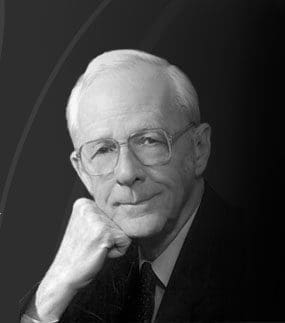
Jay Wright Forrester Committee
John Sterman 2023-2027
Shayne Gary (Chair) 2022-2026
Elke Husemann 2022-2026
Khalid Saeed 2021-2025
David Lane 2024-2028
guidelines
The Society encourages nominations from the broad System Dynamics community. We rely on high-quality, thoughtful nominations, and we urge you to submit a nomination for any work that you deem worthy of consideration. Once received, the Awards Committee reviews the nominations, which may include follow-up with the nominator, and creates a shortlist from which it may select a winner.
Nominations for the Forrester Award may be made by anyone who uses System Dynamics or follows the progress of the field. A nomination must include the following information:
-
The name and contact information for the nominator
-
The name and contact information for the nominee(s)
-
A complete citation of the work nominated
-
A detailed letter supporting the nomination that explains why the nominated work represents the best contribution to the field of System Dynamics during the preceding five years
Submitting an effective nomination requires writing a letter that clearly conveys the importance and significance of the nominated work. Nominations should provide clear details about the motivation for nominating the specific work, and if helpful, cite books, papers, articles, research or consulting reports, theses, and/or other written material that might provide additional support. Prior awards included recipients recognized for papers, books, and software manuals.
-
Papers and articles – Papers published in peer-reviewed journals supported most of the Jay Wright Forrester Awards given to date. Nominators should meaningfully assess the contribution of the chosen paper to System Dynamics, as well as to other fields or to specific policies as appropriate. If the author has written a series of papers on the same topic, then the nominator should select the most deserving paper from the portfolio, describe its individual merits, and provide further context about how the work fits into the portfolio of work and the merits of the portfolio.
-
Books – Books considered for the award should fully explain an important set of ideas or fully communicates a coherent research theme, without the need for nominators to cite a variety of related work by the same or other authors. Nominations should convincingly describe the substantive contributions made by the book to System Dynamics. Examples of books the Society recognized with a Jay Wright Forrester Award include Business Dynamics (2000), the definitive contemporary textbook in the field by John Sterman (winner in 2002) and Group Model Building (1996) by Jac Vennix (winner in 1999).
-
Software – Software per se is not eligible for the Forrester Award, but important software contributions as described in a user’s guide or a book are eligible. For example, Barry Richmond received the 1989 Jay Wright Forrester Award for the Academic User’s Guide to STELLA, which described the highly innovative software and effectively communicated the core concepts of System Dynamics with clarity.
We look forward to receiving your nomination!
jay w forrester award winners
How to Understand If You Should Work Harder or Work Smarter
A System Dynamics model sheds light on the tradeoffs of investing in short-term capabilities or long-term development.
Dana Meadows Award
The Award
The Dana Meadows Award of the System Dynamics Society is given annually for the best paper by a student presented at the annual System Dynamics Conference. Established in 2001, the prize celebrates and recognizes high-quality student work in the field of System Dynamics. In addition to an Award winner, several papers may be selected for honorable mention.
The Prize
The Award winner will receive a cash prize of US $2500. The winner may receive up to US$1500 for conference registration plus travel expenses. Honorable Mention recipients will receive a cash prize of US $500.
Funding
This award is funded by Dennis Mesadows. Email us if you are interested in supporting future awards.
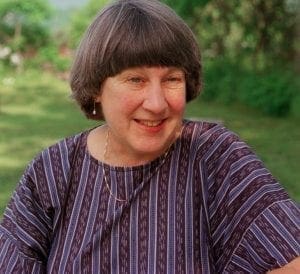
Dana Meadows Award Committee
Tom Fiddaman (Chair) 2023-2027
Richard Dudley 2023-2027
John Sterman 2020-2025
Krystyna Stave 2021-2025
Florian Kapmeier 2020-2024
guidelines
Submission Requirements
An Award-worthy paper will show creativity, originality, and clarity in the way that SD is applied to a problem and communicated to its audience. Papers should meet all the standards of good SD work including dynamic structures with feedback, evidence-based reasoning and realistic decision-making rules for the actors and entities (in a model-based paper). The following guidelines should be used as a checklist to be completed before submitting a paper for the Award.
- Any paper authored by an eligible student and accepted for the conference can be considered for the Award, whether presented in a plenary, parallel, or poster session.
- An eligible student is anyone who, at the time of writing the manuscript, is enrolled in an accredited program of study in any subject and is not a previous winner of the Award.
- The paper can be co-authored with other eligible students. If such a co-authored paper is selected as the winner, the authors will share the prize equally. Papers may also be co-authored with a non-student (such as a faculty advisor or consultant), but only if accompanied by a statement from the advisor that the intellectual content arises from the student’s own work. In all such cases, the student must appear as the first author and non-students do not receive a share of the prize.
- Students are strongly encouraged to attend the conference and present their work. Only under exceptional circumstances will the winner or honorable mentions be recognized without attendance. A winner who is unable to attend in person will not receive travel compensation. Registration will be compensated for a winner who attends virtually or in person.
- Model-based papers should meet the Preferred Model Reporting Requirements as detailed in the preceding document link and must include a separate file with the fully documented model able to reproduce all of the runs mentioned in the paper.
- In most cases, this will mean submitting a model and ancillary files in the native format of an SD simulation software package, or source code in some other language.
- Models may be submitted by email to the award committee where confidentiality agreements preclude use of the conference submission system.
- Methodology- and Experiment-based papers should include the reasons for the research, the fully documented steps required to replicate or establish the reproducibility of the results reported, and any significant improvement or novelty of the results relative to the current state of knowledge.
- Papers must not exceed 7,500 words. A word count must be provided immediately below the abstract. However, essential documentation or model code can appear in a technical appendix or additional files without adding to the word count.
Nomination Procedure
To be considered for the Award you should follow the self-nomination procedure when you submit your paper to the conference, or no later than the conference submission deadline. You will be asked to affirm that you meet the requirements for the prize and agree to the review terms.
If your paper is co-authored, you will be asked to identify which authors are students. Non-student co-authors must each present a signed statement as part of the application, indicating that the student author(s) is(are) responsible for the content of the paper, and the intellectual content of the paper derives from the work of the student(s). The statement should specify submission number and the title of the paper. A sample statement is available for reference in the Submission System. To submit the statement, click on the submission in the Web Portal, “Upload new or updated files”, and attach the statement in the “Award Affirmation Documents” section as a pdf (or zip of multiple pdfs if more than one non-student is a co-author).
Faculty Advisor Comments
The Award Committee encourages the student’s Faculty Advisor to submit a brief statement of evaluation and support for the paper. The Dana Meadows Student Award is funded through an endowment established by the System Dynamics Society. The Society gratefully acknowledges the support of all those donors who have contributed to the fund and in particular Jane and Allen Boorstein who generously helped establish the award in 2001.
a note about the award
“Dana knew better than most of us that the leverage points for changing a system often lie far from the symptoms of difficulty. She would understand that an application of system dynamics to issues apparently not connected to sustainability, including corporate applications, might very well promote her goals, not only her goals of creating a sustainable and just society but of promoting integrity and honesty in our analysis of problems, whatever and wherever they may be – that is, in the way we create and test our models, mental and formal.”
“On occasions when I might be tempted to cut corners in modeling work (what modeler hasn’t faced these), envisioning Dana across the table, posing her gentle but piercing queries, was one of the things that helped keep me honest.”
The Society’s Dana Meadows Award symbolizes the Society’s commitment to students in two ways. It brings recognition to the very best student work. It also honors, in an enduring way, the life and work of Dana Meadows.
Dana Meadows is remembered as an eloquent sustainability advocate and environmental writer. But she was also, and arguably foremost, a teacher — one exceptionally committed to her students and their development not only intellectually but in all ways. Honoring Dana through this Award recognizes her work as an inspiring teacher and mentor of young people and sets a standard for what good modeling is. The Award will help develop the next generation of systems thinkers and modelers according to her ideals. Her unusually high level of integrity in all things extended to high standards for modeling, for documentation, and for exposing assumptions. The words of two of her (now distinguished) former students embody the spirit and intention of the Award:
dana meadows award winners
GM Creates the Telematics Industry Using System Dynamics
The Official Website
onstar.com is the official website in which you can become a member, get familiar with the services and purchase a plan.
The Issue You Tackled
In 1997, General Motors (GM) assembled a project team to develop its OnStar telematics business. Telematics is the provision of communications services to cars, including crash notification, navigation, Internet access, and traffic information. OnStar is GM’s two-way vehicle communication system that provides a variety of services that enhance safety, security, entertainment, and productivity. At the time, GM faced fundamental strategic decisions with respect to OnStar. The default and safe strategy was to market OnStar as a car feature that would improve vehicle safety and security. An alternate strategy was to view OnStar as a service business that could contribute greatly to GM’s profits.
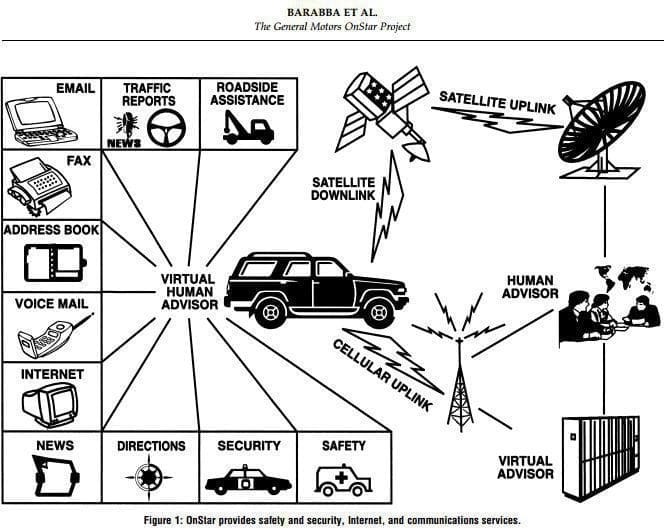
What You Actually Did
GM formed a project team to consider alternative strategies for OnStar. GM makes important strategic decisions through the dialogue decision process, in which the project team interacts with the decision board that is responsible for actually making the decision and committing resources. Dynamic modeling can be a part of this process.
In this case, application of modeling was difficult. In the vehicle business, GM has decades of experience and plentiful historical data. Modelers can build on a wealth of previous analyses and examples of best practice. The OnStar business was very different in that the telematics market did not exist. To cope with the inherent uncertainty, we needed a modeling process that would allow integration of various methods and data sources. A simulation model was our core tool in the OnStar strategy project. The final model had six key sectors: customer acquisition, customer choice, alliances, customer service, finances, and dealer behavior.
In late 1997, the project team recommended a very aggressive strategy that included installation on all GM vehicles, recruitment of other manufacturers into the OnStar system, making the first year of service free and aggressively pursuing alliances with content partners.
The Results
Through 2001, the implementation of the OnStar business strategy has progressed very much as expected. The project contributed to creating a new enterprise mental model for GM, in which the transactions revenue is augmented with a stream of revenue from service businesses like OnStar. The OnStar project also created the new telematics business which did not exist before GM implemented its strategy. Today, Wall Street analysts project that the industry will grow to $12 billion over the next 10 years. By far, OnStar’s most important contribution is saving lives. OnStar answers thousands of emergency calls each month and has often made the difference between life and death.
| Name | The General Motors OnStar Project |
|---|---|
| Modelers | Vince Barabba, Chet Huber, Fred Cooke, Nick Pudar, Jim Smith, Mark Paich |
| Client | General Motors |
| Client Type | Corporation |
Do you want to know more?
Publications
| A multimethod approach for creating new business models: the General Motors OnStar project | Download |
Did You Know?
System Dynamics Application Award
The System Dynamics Applications Award is presented by the Society every other year for the best “real world” application of system dynamics. In 2007, the Society awarded its first Applications Award to Vince Barabba, Chet Huber, Fred Cooke, Nick Pudar, Jim Smith, and Mark Paich for their work A Multimethod Approach for Creating New Business Models: The General Motors OnStar Project.
To see the citation that was made by James Lyneis at the conference, please follow this link. (Jul 2007)
OTHER SUCCESSFUL APPLICATIONS
A Design Value Calculator: A System Dynamics Boardgame
A Design Value Calculator: A System Dynamics Boardgame EXECUTIVE Summary Product design is a specific form of complex innovation that touches all areas of an organization’s management. While entrepreneurs recognise the value of design, they often tend to focus...
The World Bank Uses System Dynamics to Identify Root Causes of Poverty
The World Bank Uses System Dynamics to Identify Root Causes of Poverty EXECUTIVE Summary Madagascar has one of the highest poverty rates in the world. In 2022, an astonishingly three out of every four people in Madagascar lived below the poverty line. Poverty has...
Fast-Track Cities Uses System Dynamics to Enhance HIV Care
Fast-Track Cities Uses System Dynamics to Enhance HIV Care EXECUTIVE Summary Low levels of viral suppression at 69% for people with HIV make it hard to believe the 95% target level will be achieved by 2030 in St. Louis, USA. As a solution, Fast-Track Cities-STL opted...
Upcoming Events

Virtual Career Fair by MINDS & SDS
The Master students in System Dynamics at the University of Bergen, in partnership with the System Dynamics Society, are excited to host an enriching Virtual Career Fair. This event is designed to connect students, alumni, and professionals in the field of System...
Recent Posts
Society Governance Updates
Society Governance Updates Welcome, Allyson! New President Allyson Beall King joined the Policy Council as our 2024 President. Her primary role is as director of the Washington State University School of the Environment, which focuses on regional ecologies and our...
Call for Presenters: Seminar Series
Call for Presenters: Seminar Series We at the System Dynamics Society are continually seeking vibrant and knowledgeable presenters for our ongoing Seminar Series. As we unfold the calendar, there’s always a place for more insights, experiences, and expertise to enrich...
Honoring Excellence: A Glimpse into the Awards of the International System Dynamics Conference
Honoring Excellence: A Glimpse into the Awards of the International System Dynamics Conference The International System Dynamics Conference brings together experts, practitioners, and students to exchange ideas, showcase real-world applications, and celebrate...
Join us
OTHER SUCCESSFUL APPLICATIONS
A Design Value Calculator: A System Dynamics Boardgame
A Design Value Calculator: A System Dynamics Boardgame EXECUTIVE Summary Product design is a specific form of complex innovation that touches all areas of an organization’s management. While entrepreneurs recognise the value of design, they often tend to focus...
The World Bank Uses System Dynamics to Identify Root Causes of Poverty
The World Bank Uses System Dynamics to Identify Root Causes of Poverty EXECUTIVE Summary Madagascar has one of the highest poverty rates in the world. In 2022, an astonishingly three out of every four people in Madagascar lived below the poverty line. Poverty has...
Fast-Track Cities Uses System Dynamics to Enhance HIV Care
Fast-Track Cities Uses System Dynamics to Enhance HIV Care EXECUTIVE Summary Low levels of viral suppression at 69% for people with HIV make it hard to believe the 95% target level will be achieved by 2030 in St. Louis, USA. As a solution, Fast-Track Cities-STL opted...
Recent Posts
Society Governance Updates
Society Governance Updates Welcome, Allyson! New President Allyson Beall King joined the Policy Council as our 2024 President. Her primary role is as director of the Washington State University School of the Environment, which focuses on regional ecologies and our...
Call for Presenters: Seminar Series
Call for Presenters: Seminar Series We at the System Dynamics Society are continually seeking vibrant and knowledgeable presenters for our ongoing Seminar Series. As we unfold the calendar, there’s always a place for more insights, experiences, and expertise to enrich...
Honoring Excellence: A Glimpse into the Awards of the International System Dynamics Conference
Honoring Excellence: A Glimpse into the Awards of the International System Dynamics Conference The International System Dynamics Conference brings together experts, practitioners, and students to exchange ideas, showcase real-world applications, and celebrate...
Upcoming Events

Virtual Career Fair by MINDS & SDS
The Master students in System Dynamics at the University of Bergen, in partnership with the System Dynamics Society, are excited to host an enriching Virtual Career Fair. This event is designed to connect students, alumni, and professionals in the field of System...
Fluor Avoids Costly Project Changes Saving $1.3bn
Fluor saves $1.3 billion in System Dynamics-based project management.
#United States #Engineering #Fluor #Corporation
CLIENT: FLUOR
Fluor is one of the world’s largest engineering and construction firms, with 2008 revenues over $20 billion. The US-based firm operates in every major business sector and geography.
CHALLENGE: CHANGES DON’T IMPROVE PROJECTS, QUITE THE OPPOSITE
A large part of Fluor’s work is organized in the form of projects, which are typically market-driven with aggressive cost and schedule targets and evolving client needs. It is the tension among these different objectives that is often the underlying dynamic for generating changes on projects. In an initiative by Fluor’s Chairman, a comprehensive quantitative review examined all Fluor projects over several years. For many in the industry, there is a misperception that contractors improve their performance with more changes. This company-wide review was unequivocal in refuting that notion. There is a clear, unambiguous relation between the level of changes and the cost and schedule performance of projects: more changes bring ever-worsening performance on projects.
ACTION: FLEXIBLE SYSTEM DYNAMICS MODEL TO PROJECT COST OF CHANGES
After Fluor had identified and quantified the business need for improving the practice of project change management, two external consultants first built and piloted and validated a project model to assess change impacts on several initial projects. In the four years since then, the model has been used in the “Change Impact Assessment” system to conduct thousands of analyses on over 100 client projects. Fluor projects analyzed with this model range in size from less than million to more than billion.
The system rapidly tailors a model to simulate each engineering and construction project. Each model is then used to foresee future cost and schedule impacts of project changes, and most important, test ways to avoid the impacts.
We developed a project model based on our prior modeling work with Fluor, and built a system around it, with defined practices to rapidly and automatically tailor the model to a specific project. We set up an interface to allow dozens of trained company users to test proactively project-wide impacts of proposed design or scope changes.
We conducted worldwide training of executives and managers and analysts, ensuring the focus was on foreseeing and mitigating future change impacts. The system was applied to hundreds of Fluor projects.
RESULTS: COST REDUCTION OF $1.3 BILLION
A cultural change occurred in the company, focused on proactive mitigating efforts that reduce change impacts on the projects.As a result, many disputes were avoided (some had cost tens of millions of dollars), and cost impacts were reduced by proactive actions identified in the analyses, amounting to over $1.3 billion savings to Fluor and their clients.
LEARN MORE
System Dynamics modelers: Kenneth Cooper and Gregory Lee
AWARDS & PUBLICATIONS
Award: In 2009, the Society awarded its System Dynamics Applications Award to Kenneth Cooper and Gregory Lee for their work Managing the Dynamics of Projects and Changes at Fluor. See conference slides and citation.
Article: Managing the Dynamics of Projects and Changes at Fluor
OTHER SUCCESSFUL APPLICATIONS
A Design Value Calculator: A System Dynamics Boardgame
A Design Value Calculator: A System Dynamics Boardgame EXECUTIVE Summary Product design is a specific form of complex innovation that touches all areas of an organization’s management. While entrepreneurs recognise the value of design, they often tend to focus...
The World Bank Uses System Dynamics to Identify Root Causes of Poverty
The World Bank Uses System Dynamics to Identify Root Causes of Poverty EXECUTIVE Summary Madagascar has one of the highest poverty rates in the world. In 2022, an astonishingly three out of every four people in Madagascar lived below the poverty line. Poverty has...
Fast-Track Cities Uses System Dynamics to Enhance HIV Care
Fast-Track Cities Uses System Dynamics to Enhance HIV Care EXECUTIVE Summary Low levels of viral suppression at 69% for people with HIV make it hard to believe the 95% target level will be achieved by 2030 in St. Louis, USA. As a solution, Fast-Track Cities-STL opted...
Upcoming Events

Virtual Career Fair by MINDS & SDS
The Master students in System Dynamics at the University of Bergen, in partnership with the System Dynamics Society, are excited to host an enriching Virtual Career Fair. This event is designed to connect students, alumni, and professionals in the field of System...
Recent Posts
Society Governance Updates
Society Governance Updates Welcome, Allyson! New President Allyson Beall King joined the Policy Council as our 2024 President. Her primary role is as director of the Washington State University School of the Environment, which focuses on regional ecologies and our...
Call for Presenters: Seminar Series
Call for Presenters: Seminar Series We at the System Dynamics Society are continually seeking vibrant and knowledgeable presenters for our ongoing Seminar Series. As we unfold the calendar, there’s always a place for more insights, experiences, and expertise to enrich...
Honoring Excellence: A Glimpse into the Awards of the International System Dynamics Conference
Honoring Excellence: A Glimpse into the Awards of the International System Dynamics Conference The International System Dynamics Conference brings together experts, practitioners, and students to exchange ideas, showcase real-world applications, and celebrate...
Join us
OTHER SUCCESSFUL APPLICATIONS
A Design Value Calculator: A System Dynamics Boardgame
A Design Value Calculator: A System Dynamics Boardgame EXECUTIVE Summary Product design is a specific form of complex innovation that touches all areas of an organization’s management. While entrepreneurs recognise the value of design, they often tend to focus...
The World Bank Uses System Dynamics to Identify Root Causes of Poverty
The World Bank Uses System Dynamics to Identify Root Causes of Poverty EXECUTIVE Summary Madagascar has one of the highest poverty rates in the world. In 2022, an astonishingly three out of every four people in Madagascar lived below the poverty line. Poverty has...
Fast-Track Cities Uses System Dynamics to Enhance HIV Care
Fast-Track Cities Uses System Dynamics to Enhance HIV Care EXECUTIVE Summary Low levels of viral suppression at 69% for people with HIV make it hard to believe the 95% target level will be achieved by 2030 in St. Louis, USA. As a solution, Fast-Track Cities-STL opted...
Recent Posts
Society Governance Updates
Society Governance Updates Welcome, Allyson! New President Allyson Beall King joined the Policy Council as our 2024 President. Her primary role is as director of the Washington State University School of the Environment, which focuses on regional ecologies and our...
Call for Presenters: Seminar Series
Call for Presenters: Seminar Series We at the System Dynamics Society are continually seeking vibrant and knowledgeable presenters for our ongoing Seminar Series. As we unfold the calendar, there’s always a place for more insights, experiences, and expertise to enrich...
Honoring Excellence: A Glimpse into the Awards of the International System Dynamics Conference
Honoring Excellence: A Glimpse into the Awards of the International System Dynamics Conference The International System Dynamics Conference brings together experts, practitioners, and students to exchange ideas, showcase real-world applications, and celebrate...
Upcoming Events

Virtual Career Fair by MINDS & SDS
The Master students in System Dynamics at the University of Bergen, in partnership with the System Dynamics Society, are excited to host an enriching Virtual Career Fair. This event is designed to connect students, alumni, and professionals in the field of System...
US Communities Take Control of Local Health System
The Official Website
rethinkhealth.org is the official website that covers all information about this project including the latest news, simulators and learning tools, videos, etc.
The American Health System is broken. Expenditures on health are increasing rapidly and have outstripped most other countries on a per capita basis. At the same time, health outcomes are not in line with spending.
On most measures (including life expectancy at birth in Fig. 1), our nation’s health is far worse than projected based upon expected results under equivalent spending levels in other developed countries.

Figure 1. Life Expectancy versus Health Spending per Capita by Country. Source: Robert Wood Johnson Foundation, Data from OECD Health Data 2011; World Bank and national sources for non-OECD countries.
In recent years, significant efforts and resources have been dedicated at the federal, state, and local level to try to remedy this poor performance. Some headway has been made, but to experience true change to our massive and complex health system, we will need to think bigger and differently about our approach to national health—to think more systemically.
System Dynamics and Modeling Offer Insight for Effective Change
ReThink Health (RTH), a collaborative initiative of the Rippel Foundation, is encouraging this innovative thinking. RTH has invested several million dollars over the past four years[1] developing and disseminating the ReThink Health Dynamics Model, a System Dynamics simulation tool that replicates the behavior of a regional health system. It was developed in the Vensim simulation software with online hosting and user interface design by Forio Simulation. The model was developed by RTH’s award winning team of MIT-trained system modelers including Jack Homer, Gary Hirsch, and John Sterman with the oversight of Bobby Milstein and the help of a large number of collaborators. RTH has built a version of the model based on U.S. national data to represent an average American town. This Anytown configuration is freely available online and has been used by thousands of leaders, as well as dozens of academic programs at major colleges and universities, including Dartmouth, MIT, Columbia, and SUNY Albany.
In addition to the Anytown Model, RTH has configured the model with data reflecting the particular characteristics of ten regions to date (including Atlanta, GA; Cincinnati, OH; and Pueblo, CO). In these communities, the model has been used in multi-stakeholder meetings to align thinking, develop sound strategies, shift resources, and catalyze action.
The Model allows local leaders and stakeholders to immediately evaluate proposed strategies for improving their local health systems. The model incorporates evidence on the cost and effectiveness and timing of more than a dozen initiatives which range from upstream efforts to protect population health to downstream efforts to reduce healthcare costs, improve quality of care, and increase workforce capacity to meet the demand for care, as seen in Figure 2.

Figure 2. Intervention Options for Simulation Scenarios. Reprinted with permission of ReThink Health.
The model also accounts for program funding—often a harsh reality in any health reform endeavor. Users begin with an initial program budget and can explore scenarios with that as a practical constraint. They may also consider options to move beyond conventional program financing, for example, by negotiating agreements to reinvest a fraction of any healthcare cost savings in order to extend or even expand program funding over time.
Users also have the ability to alter a variety of wider trends, such as the extent of insurance expansion under the Affordable Care Act, as well as all assumptions about about intervention impacts, costs, and time delays.
After users input their proposed initiative combinations, the simulator will play out the likely results over 25 years—giving almost instantaneous feedback on the expected effects across more than 200 metrics of population health, healthcare costs, population health, quality of care, social equity, workforce productivity, program spending, and return-on-investment. Users can easily compare results by testing alternative scenarios to find a combination that best achieves their goals with acceptable tradeoffs, under specific financial constraints, and taking into account realistic conditions in the region.
Facilitating Change With Simulation Modeling
Organizational change, in general, is fraught with difficulty. And, in an arena as complex as the American health system, change can be extraordinarily expensive and slow, if it occurs at all. Reformers often waste resources on ineffective initiatives. Or they aim too low. Or they run out of money before seeing the full effects of their investments. According to the ReThink Health website, the model was “designed to help groups overcome those challenges, to better understand what is possible, and to develop targeted strategies to achieve lasting system-wide goals.”
Rethink Health projects that if regions throughout the nation were to collectively shift investment and focus resources to implement sound strategies identified in the model[2], the American Health System could save a cumulative[3] $7 trillion in health care costs over the next 25 years while simultaneously avoiding premature death for 8 million people, increasing workforce productivity by $7 trillion, and reducing the inequality gap by more than 25%. An effort this ambitious will require the coordinated effort of many. Interactive simulation modeling is a key component of ReThink Health’s overall efforts to foster broad-based stewardship, sound strategy, and sustainable financing for regional health reform.
There is a growing body of evidence showing that the ReThink Health Model and other tools can support these goals. Below is a summary of some noteworthy early effects.
Bringing Big Data Together in an Easy to Use Decision Making Tool
Local health data and research about the effectiveness of initiatives that will improve the health system is abundant. The massive quantity of data makes it difficult for decision makers to evaluate and focus on the small number of initiatives that will make the most difference. The tendency, in the face of this, is to try to do everything. And a little bit of everything is what is being done in most communities.
The ReThink Health Dynamics Model integrates dozens of separate data sources and diverse literatures into a single calculator (see Fig. 3), which allows people to estimate and compare the potential impact of proposed solutions in the face of realistic funding limitations. The model allows conversations and decisions to be based on the evidence. It allows communities to focus together on the most effective combinations of initiatives to achieve their goals in the face of budget realities.

Figure 3. Combining Evidence (Reprinted with permission of ReThink Health)
Local Calibration puts Powerful Tools Within Reach
The Model is designed to represent particular features of the health system in a given location through a streamlined process of local data gathering and calibration. Therefore, even smaller cities can create a powerful analytical tool that reflects their own region as best as possible. For approximately $50,000, the average cost to produce a new calibration, small communities like Pueblo, CO can access a sophisticated, multi-million dollar simulator that uses local data to engage local leaders in setting strategic priorities for their region. This is something that most communities would not be able to afford to do from scratch.
Visualizing Big Picture Results
According to Christine-Nevin Woods, former Director of the Pueblo City-County Health Department, “ReThink Health modeling opened our eyes. It offered perspectives on big impact changes that might not pay off right away .”
In many cases, individuals and organizations who work in silos are limited in their perspective by small budgets and adjust their priorities accordingly. They often avoid the more expensive and more effective initiatives, as a result. By bringing together broad stakeholder groups, ReThink Health allows people to consider the power of collective action. And this lets them begin to explore what could be accomplished with more targeted funding and shared priorities.
While many groups are initially satisfied with the results of their first run in the model, they soon realize that there is far more potential for improvements in both health and economic outcomes. Once regional leaders are awakened to the possibilities, they frequently expand their aspirations and to think bigger and more strategically about their role as stewards of a common health system. The Atlanta Regional Collaborative for Health Improvement (“ARCHI”) and other ReThinkers, for example, are currently working on an ambitious plan to shift priorities in their regions to those identified as effective in the ReThink Health Dynamics Model. ARCHI’s efforts are described in more detail in a blog by Susan Dentzer and in the ARCHI Playbook that defines their stategic focus.

Figure 4. The Possibilities for Health Reform. Source: Model results from the ReThink Health USA Model reprinted with Permission of ReThink Health.
Driving Rapid Strategy Alignment
Changing the health system will require a coordinated effort and effective alignment of resources for true collective impact. Achieving alignment is made more difficult when different stakeholders see only part of the picture. With the aid of the model, discussions in multi-stakeholder meetings are based on data, as well as a shared view of a common health system. The ability to immediately test proposals can help people to improve their understanding and change their minds. This often reveals greater consensus and supports more efficient efforts to agree on a practical course of action.
This consensus-building power has been demonstrated over and over again in brief facilitated multi-stakeholder experiences with the Model. According to Eileen Dennis, member of the Pueblo County Board of Health, “Working with the Model built consensus around common issues that will enable us to have collective impact. We have now built a new organization and implementation plan around the model experience and attracted significant local and foundation support.” This support included $706,000 in backbone funding to support their strategic efforts to implement the strategies identified in the model.
And in Atlanta, a group of 70 stakeholders representing diverse viewpoints (including hospital administrators, public health officials, philanthropies, healthcare professionals, insurers, business, and clergy) met for 5 hours and achieved consensus that has endured for the past several years. This included individual shifts in focus on a smaller, shared number of initiatives (Fig. 5), as well as, overwhelming agreement around one scenario generated during the session (Fig. 6).

Figure 5. Shifting priorities resulting from Strategy Lab in Atlanta, GA. Reprinted with permission of ReThink Health.
According to Karen Minyard, Executive Director of the Georgia Health Policy Center, “ReThink Health modeling helped people discover surprisingly strong areas of consensus. It helped us through a step where we might otherwise have gotten stuck.”
According to Jane Bramscomb, Senior Research Associate at the Georgia Health Policy Center, “The exercise got leaders with very different backgrounds and interests thinking collaboratively about the system. They shared their ideas about what’s needed for progress in Atlanta and were able almost instantly to see the long-term implications of their assumptions. When one particular combination of actions rose well above the others on nearly every metric, it gave the whole group a strong sense of hope for the future and agreement about how to move forward together.”

Figure 6. Polling result from Strategy Lab held in Atlanta, GA. Reprinted with permission of ReThink Health.
Shifting Investment Priorities
The use of the model in diverse settings with local decision makers has resulted in substantial shifting of funding priorities. Several communities, including Atlanta, GA, Pueblo, CO, Cincinnati, OH, and Greater Monadnock, NH are in the throes of implementation and it is expected that additional shifts will take place as local strategy implementation matures. A few documented examples of commitments to shift based on the Model analytics are outlined below:
- In Atlanta, the United Way shifted the priorities for an RFP for $3.6 million in spending and local hospitals committed to redirect community benefit dollars towards initiatives identified in a modeling session.
- At the Dartmouth-Hitchcock Medical Center, the board shifted approximately $11 million from conventional investments in stocks and bonds to local population health innovation fund as the result of Model analysis that suggested a higher return on investment over time.
Attracting Ongoing Funding Support for ReThink Health
The Model also serves as a powerful tool for ReThink Health to garner support for its broader work. The Model is a tangible product that excites the interest of funders. It also provides clear evidence for a theory of change that is specific about the potential for system improvement and expected return on investment. All of this serves to strengthen the value proposition for strategies that might yield greater leverage. Below are a few examples of funding that was received by ReThink Health in large part due to the existence of the model:
- The Rippel Foundation, has dedicated the vast majority of their annual funding, in excess of $4 million per year, to support the ReThink Health Initiative.
- The Robert Wood Johnson Foundation has invested approximately $6.2 million with ReThink Health to focus attention on primary leverage points that surface repeatedly in modeling sessions across the country, including efforts to better balance health and health care, foster broad-based stewardship, assure sustainable financing, and practice inclusive business planning for health.
- Users in academic institutions and other organizations are paying user fees and facilitation costs for tools that help them better incorporate the Model in their curricula. This allows ReThink Health to support ongoing development of the model and its supporting documentation.
According to Laura Landy, President and CEO of the Rippel Foundation, “Regional stewardship groups are attracted to the ReThink Health Model because it helps to show them that a healthier future is within reach. By working with the Model and with each other, teams are motivated to develop a strategy that catalyzes regional health reform.”
System Dynamics Models Act as Mechanism for Change
System Dynamics simulation tools, like the ReThink Health Dynamics Model, can be powerful catalysts for change. Experiential, computer-based learning that brings the power of evidence to strategic decision making. Both grassroots organizations and senior executives can engage with the model, and with each other, to identify more effective strategies, and align resources to drive implementation.
As Anne Weiss of the Robert Wood Johnson Foundation stated, “The Model creates an experiential, evidence-based approach to raising big issues, entering into challenging conversations, and providing new insights. It has the power to cross and move cultures, creating the opportunity for really productive dialogue and action.”
[1]Additional resources had been invested in the tool prior to that by The Centers for Disease Control and Prevention in the form of the Healthbound, a model for health policy testing at the national level.
[2]These tend to include a combination of downstream cost cutting (like care coordination) with substantial investment in the upstream (like healthy behaviors and programs to lift people out of poverty) funded through an innovative scheme to capture and reinvest savings back into efforts and supercharged by a shift from a fee-for-service payment model to a system in which doctors are paid per capita for ensuring the health of their patients.
[3] From the start of the simulation in 2015 to the end in 2040.
| Modelers | Jack Homer, Gary B. Hirsch, Bobby Milstein, and Elliott S. Fisher |
|---|---|
| Client/Participant | Fannie E. Rippel Foundation (New Jersey) |
- Combined Regional Investments Could Substantially Enhance Health System Performance And Be Financially Affordable
- NASPAA Student Simulation Competition: Reforming the U.S. Health Care System Within a Simulated Environment
- ReThink Health Dynamics: Understanding and Influencing Local Health System Change
- County Officials Embark on New Collective Endeavors to ReThink Their Local health Systems
ReThink Health: Simulation models supporting local solutions to a national problem (October 29, 2013)
Presented by Jack Homer, Owner, Homer Consulting
Presentation slides: ReThink Health slides
Description: In this video, Jack Homer presents ReThink Health, a model-based approach to understanding health at the community level that has featured prominently in our last two conferences. The ReThink Health webinar is an opportunity to introduce new people to System Dynamics. If you have friends or colleagues interested in health and health care let them know. It promises to be interesting and informative. This webinar is one of the Big Data, System Dynamics, and XMILE webinar series jointly sponsored by IBM, isee systems, and the OASIS XMILE Technical Committee.
ReThink Health Dynamics Model Blog and Use Cases
Blog devoted to lessons of the ReThink Health Dynamics Model, plus descriptions of how the model has been used with health leaders in several local places around the US.
OTHER SUCCESSFUL APPLICATIONS
A Design Value Calculator: A System Dynamics Boardgame
A Design Value Calculator: A System Dynamics Boardgame EXECUTIVE Summary Product design is a specific form of complex innovation that touches all areas of an organization’s management. While entrepreneurs recognise the value of design, they often tend to focus...
The World Bank Uses System Dynamics to Identify Root Causes of Poverty
The World Bank Uses System Dynamics to Identify Root Causes of Poverty EXECUTIVE Summary Madagascar has one of the highest poverty rates in the world. In 2022, an astonishingly three out of every four people in Madagascar lived below the poverty line. Poverty has...
Fast-Track Cities Uses System Dynamics to Enhance HIV Care
Fast-Track Cities Uses System Dynamics to Enhance HIV Care EXECUTIVE Summary Low levels of viral suppression at 69% for people with HIV make it hard to believe the 95% target level will be achieved by 2030 in St. Louis, USA. As a solution, Fast-Track Cities-STL opted...
Upcoming Events

Virtual Career Fair by MINDS & SDS
The Master students in System Dynamics at the University of Bergen, in partnership with the System Dynamics Society, are excited to host an enriching Virtual Career Fair. This event is designed to connect students, alumni, and professionals in the field of System...
Recent Posts
Society Governance Updates
Society Governance Updates Welcome, Allyson! New President Allyson Beall King joined the Policy Council as our 2024 President. Her primary role is as director of the Washington State University School of the Environment, which focuses on regional ecologies and our...
Call for Presenters: Seminar Series
Call for Presenters: Seminar Series We at the System Dynamics Society are continually seeking vibrant and knowledgeable presenters for our ongoing Seminar Series. As we unfold the calendar, there’s always a place for more insights, experiences, and expertise to enrich...
Honoring Excellence: A Glimpse into the Awards of the International System Dynamics Conference
Honoring Excellence: A Glimpse into the Awards of the International System Dynamics Conference The International System Dynamics Conference brings together experts, practitioners, and students to exchange ideas, showcase real-world applications, and celebrate...
Join us
OTHER SUCCESSFUL APPLICATIONS
A Design Value Calculator: A System Dynamics Boardgame
A Design Value Calculator: A System Dynamics Boardgame EXECUTIVE Summary Product design is a specific form of complex innovation that touches all areas of an organization’s management. While entrepreneurs recognise the value of design, they often tend to focus...
The World Bank Uses System Dynamics to Identify Root Causes of Poverty
The World Bank Uses System Dynamics to Identify Root Causes of Poverty EXECUTIVE Summary Madagascar has one of the highest poverty rates in the world. In 2022, an astonishingly three out of every four people in Madagascar lived below the poverty line. Poverty has...
Fast-Track Cities Uses System Dynamics to Enhance HIV Care
Fast-Track Cities Uses System Dynamics to Enhance HIV Care EXECUTIVE Summary Low levels of viral suppression at 69% for people with HIV make it hard to believe the 95% target level will be achieved by 2030 in St. Louis, USA. As a solution, Fast-Track Cities-STL opted...
Recent Posts
Society Governance Updates
Society Governance Updates Welcome, Allyson! New President Allyson Beall King joined the Policy Council as our 2024 President. Her primary role is as director of the Washington State University School of the Environment, which focuses on regional ecologies and our...
Call for Presenters: Seminar Series
Call for Presenters: Seminar Series We at the System Dynamics Society are continually seeking vibrant and knowledgeable presenters for our ongoing Seminar Series. As we unfold the calendar, there’s always a place for more insights, experiences, and expertise to enrich...
Honoring Excellence: A Glimpse into the Awards of the International System Dynamics Conference
Honoring Excellence: A Glimpse into the Awards of the International System Dynamics Conference The International System Dynamics Conference brings together experts, practitioners, and students to exchange ideas, showcase real-world applications, and celebrate...
Upcoming Events

Virtual Career Fair by MINDS & SDS
The Master students in System Dynamics at the University of Bergen, in partnership with the System Dynamics Society, are excited to host an enriching Virtual Career Fair. This event is designed to connect students, alumni, and professionals in the field of System...

